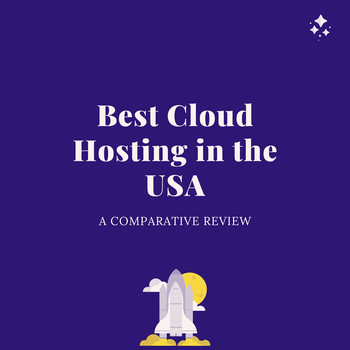Kubernetes or Serverless? Why not both?
in Kubernetes , Serverless

As infrastructure is moving towards a cloud-hosted environment, Serverless Architecture has become more than a buzz word.
Serverless is one of the significant trends of the moment in software development and deployment. A promising technology, Serverless Computing is developing very quickly in companies.
Other rising technologies are having the same great potential, like Kubernetes. But who says that you must choose between Kubernetes and Serverless for your next application while you can deploy efficient and stable Serverless applications on Kubernetes?
In this blog post, we are going to discover some tools that allow you to run your Serverless functions on a Kubernetes cluster.
Fission
Fission is an open source serverless framework released by Platform9 and is based on Kubernetes. It allows developers to concentrate on coding and takes care of the plumbing with Kubernetes. It offers language flexibility and supports HTTP events and can be set-up easily.
Knative
Knative is an open source initiative that combines Kubernetes with Serverless and is largely supported by Google engineers. It provides a platform to build serverless solutions on top of Kubernetes. Knative supports autoscaling, in-cluster builds, and eventing framework for cloud-native applications on Kubernetes.
Kubeless
Kubeless is an open source serverless framework that supports functions and is designed to be deployed on a Kubernetes cluster. It supports Python, Node.js, Ruby, PHP, Golang, .NET, Ballerina, and custom runtimes. Triggers are supported through the Kafka messaging system and HTTP events. Monitoring is supported through Prometheus. The drawback of Kubeless is that it is not adequately represented by a developer community or documentation.
OpenFaaS
OpenFaas a brainchild of Alex Ellis, is an open source serverless platform that supports serverless functions deployed on Docker Swarm or Kubernetes. The code can be written in any language inside the containerized functions. It is easy to set up as it offers a default configuration but is also customizable. There is no limit on runtime for functions. Since the application is containerized, it offers high portability.
OpenWhisk
IBM OpenWhisk is based on Apache OpenWhisk and supports multiple languages like Node.js, Swift, Java, PHP, Python, and additional languages via Docker containers. It integrates with other services like IBM Cloudant database, IBM EventStreams, and IBM Watson APIs, which provides natural language processing and AI capabilities. Monitoring and Logging capabilities are provided through IBM Cloud Monitoring. There is no time limit on single function invocation, which makes it suitable for long-time invocation.
Nuclio
Nuclio is another open source serverless platform targeted at applications that require high data-processing capabilities as it supports persistent connections. It can run over Docker or Kubernetes and is portable without any vendor lock-in. It supports multiple event sources like HTTP Events, Kinesis, Kafka, Rabbit MQ etc.. and multiple log destinations.
Fn Project
Fn Project supported by Oracle provides a way to create and run serverless functions on Docker. They can be tested and run locally or on any cloud environment with a Docker engine. The runtime itself supports all languages, but deeper functionality is available for Java, Go, Python, and Ruby.
IronFunctions
IronFunctions is an open source Functions as a Service (FaaS) platform that you can run anywhere. This platform is compatible with Kubernetes, Docker Swarm, and Mesosphere. Iron is also currently hosting Functions for select customers.
Conclusion
Mixing Kubernetes and Serverless is taking advantage of the speed of prototyping Serverless applications and the performance offered by Kubernetes. However, each technology brings possible downsides if it is not well handled. The pitfalls of Serverless and Kubernetes Failure Stories can illustrate this.
Get similar stories in your inbox weekly, for free
Share this story:

The Chief I/O
The team behind this website. We help IT leaders, decision-makers and IT professionals understand topics like Distributed Computing, AIOps & Cloud Native
Latest stories
Best Cloud Hosting in the USA
This article explores five notable cloud hosting offers in the USA in a detailed way.
Best Dedicated Hosting in the USA
In this article, we explore 5 of the best dedicated hosting providers in the USA: …
The best tools for bare metal automation that people actually use
Bare metal automation turns slow, error-prone server installs into repeatable, API-driven workflows by combining provisioning, …
HIPAA and PCI DSS Hosting for SMBs: How to Choose the Right Provider
HIPAA protects patient data; PCI DSS protects payment data. Many small and mid-sized businesses now …
The Rise of GPUOps: Where Infrastructure Meets Thermodynamics
GPUs used to be a line item. Now they're the heartbeat of modern infrastructure.
Top Bare-Metal Hosting Providers in the USA
In a cloud-first world, certain workloads still require full control over hardware. High-performance computing, latency-sensitive …
Top 8 Cloud GPU Providers for AI and Machine Learning
As AI and machine learning workloads grow in complexity and scale, the need for powerful, …
How ManageEngine Applications Manager Can Help Overcome Challenges In Kubernetes Monitoring
We tested ManageEngine Applications Manager to monitor different Kubernetes clusters. This post shares our review …
AIOps with Site24x7: Maximizing Efficiency at an Affordable Cost
In this post we'll dive deep into integrating AIOps in your business suing Site24x7 to …
A Review of Zoho ManageEngine
Zoho Corp., formerly known as AdventNet Inc., has established itself as a major player in …












